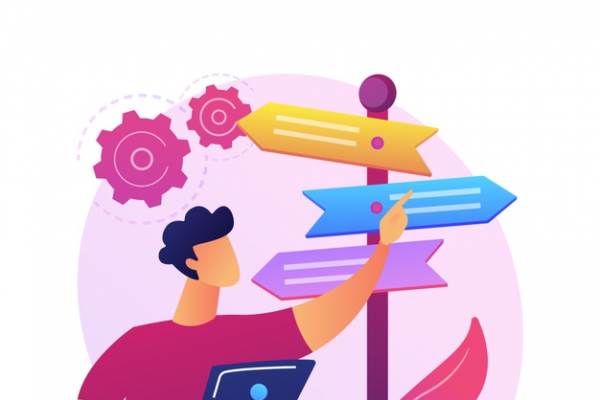The true DNA of any organisation is palpable at the workplace and the culture and ethos of an organisation cannot be easily experienced in the WFH setting.
It has been six months since WFH was forced upon millions of people worldwide. Even though people have gradually adapted to the new routine, the workplace is being sorely missed by many. There are several ‘soft’ aspects that the office environment presented us with. While such benefits were hardly noticed during the pre-COVID days, it is being recognised and missed now.
The Misses
A. Community: The loss of humanto-human, in-person, daily connect with colleagues has been the bane of this crisis. We all create bonds at the office and derive a sense of comfort and belonging in our groups, these relationships help us fulfil our need for social interaction. People everywhere are missing the water cooler conversations, coffee chats, and shared meals which formed part of our daily life at one time
B. Collaboration: Walking across to a colleague’s desk to seek a quick update, solving problems across the table, and meeting to brainstorm are no longer possible. The pace and efficacy of collaboration as was possible has been affected while working remotely,
C. Camaraderie: Team members are united by the sense of collective purpose, shared vision, and common goals. This fellowship ignites passions, drives performance, and delivers high impact results. It was easy to build this camaraderie onsite with practices that were embedded in our culture. With remote, all of us need to recreate these channels for building these professional relationships.
D. Celebrations: Awards, Events, and Outings in the workplace help raise the collective fervour, and kindles team and organisation spirits. Many of these physical celebrations are neither feasible nor safe in the current environment.
The true DNA of any organisation is palpable at the workplace and the culture and ethos of an organisation cannot be easily experienced in the WFH setting.
While we are all optimistic that normalcy will return sooner than later, and the workplaces will be throbbing with lifelike ever before, the pandemic has pressed the ‘Reset’ button. Organisations are putting in concrete plans to shift a significant part of their workforce to a permanent WFH arrangement to reduce costs and blunt the economic impact of the lockdown.
The Hits
A. Virtual Communication: Communication will be virtual and asynchronous. New channels will evolve for both formal and informal communication. Meetings will have to include an informal component to recreate the comfort of social connect and belonging. People will have to learn to establish a ‘connect’ with their colleagues and clients to collaborate effectively. Organisations will host virtual events, recognition programmes, and engage hobby groups to bridge the virtual divide and rebuild networks that existed in office.
B. Distributed Teams: Remote work models permit work from anywhere. People will shift homes to more suitable locations to save on commute time, pursue their passion and lead a better quality of life. At the same time, hiring will become location agnostic for organisations. As the workforce gets distributed across geographies and time zones, there will an imminent need to work synergistically while staying distributed.
C. Mental Health – While WFH, the lines between work and home get blurred. Remote workers tend to put in longer hours at work, stay in the always “ON” mode, and do not disconnect. This will impact people wellbeing with health issues and mental stress becoming common. Managers will have to learn to identify such signs early on and intervene proactively.
D. Learning agility: People will need to upskill and reskill themselves as technology rapidly transforms our job content. Organisations will need to create learning eco-systems that enable people to pursue learning at will.
People who attune themselves to these new ways of working will survive, sustain, and succeed in the post-COVID world.
Follow and connect with us on LinkedIn, Facebook, Instagram, Twitter for latest HR news and insights
Has COVID-19 forever changed the way we live and work?
Trending
-
SBI General Insurance Launches Digital Health Campaign
-
CredR Rolls Out 'Life Happens' Leave For Its Employees
-
Meesho Announces 30-Week Gender-Neutral Parental Leave Policy
-
Microsoft Unveils Tech Resilience Curriculum To Foster An Inclusive Future
-
60% Indian Professionals Looking For Job Change Due To COVID: Survey
-
SpringPeople And Siemens Collaborate For Digital Transformation Push
-
86% Professionals Believe Hybrid Work Is Essential For Work Life Balance: Report
-
Almost 1 In Every 3 People's Personal Life Affected Due To Work Stress
-
Meesho Rolls Out Reset And Recharge Policy For Employees
-
80% Of Talent Leaders & Academics Say Pandemic Changed Skill Needs For Youth: Report
-
Hero Electric Rolls Out 'Hero Care' Program For Employees
-
Human Capital In Collaboration With ASSOCHAM Hosts Virtual Conference
-
IKEA India, Tata STRIVE Collaborate To Create Employability And Entrepreneurship Opportunities
-
SAP India, Microsoft Launch Tech Skilling Program for Young Women
-
DXC Technology, NASSCOM Collaborate For Employability Skills Program
-
Lenskart To Hire Over 2000 Employees Across India By 2022
-
Mindtree Launches Learn-and-Earn Program
-
Tata AIA Extends 'Raksha Ka Teeka' To Its Employees
-
Swadesh Behera Is The New CPO Of Titan
-
NetConnect Global Plans To Recruit 5000 Tech Professionals In India
-
Hubhopper Plans To Hire 60% Of Indian Podcasters By 2022
-
Corporate India Needs More Women In Leadership Roles: Report
-
Aon to Invest $30 Million and Create 10,000 Apprenticeships by 2030
-
Tech Mahindra Launches ‘Gift a Career’ Initiative for Upskilling of Youth
-
40% Women Prefer Flexible Working Options in Post-COVID World: Survey
-
3 out of 4 companies believe they can effectively hire employees virtually: Report
-
Vodafone , CGI and NASSCOM Foundation launch digital skills platform
-
Odisha: Bank, postal employees to deliver cash for elderly, differently-abled persons
-
Skill India launches AI-based digital platform for "Skilled Workforce"
-
Hiring activity declines 6.73% in first quarter: Survey
-
70% startups impacted by COVID-19 pandemic
-
Bajaj Allianz Life ropes in Santanu Banerjee as CHRO
-
Over 70 Percent MSMEs look at cutting jobs to sustain businesses
-
93 Per Cent employees stressed about returning to office post-lockdown
-
Johnson & Johnson India announces family benefits for same gender partners
-
Indian firms turning friendly towards working mothers
-
Welspun India names Rajendra Mehta as new CHRO
-
Wipro partners with NASSCOM to launch Future Skills platform



Human Capital is niche media organisation for HR and Corporate. Our aim is to create an outstanding user experience for all our clients, readers, employers and employees through inspiring, industry-leading content pieces in the form of case studies, analysis, expert reports, authored articles and blogs. We cover topics such as talent acquisition, learning and development, diversity and inclusion, leadership, compensation, recruitment and many more.
Subscribe Now



.JPG)









































Comment